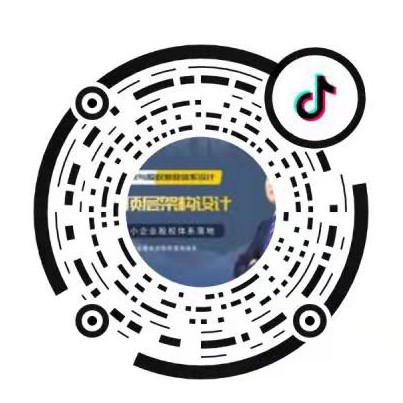Shandong Equity Incentive Training Course: How to Use Equity Incentive to Comfort Old Employees?
1.打破老员工原有的惯性思维,重塑老员工的价值追求。
1. Break the old employees' habitual thinking and reshape their value pursuit.
从老员工的价值追求是否与企业的价值追求一致入手,首先明确或重塑公司愿景、目标、使命,让其看到公司未来的价值与发展前景,看到自己所做工作的意义,给市场给客户给企业创造价值,让老员工树立责任感、使命感、以及期待目标实现之后的成就感。
Starting from whether the value pursuit of senior employees is consistent with the value pursuit of the enterprise, the first step is to clarify or reshape the company's vision, goals, and mission, so that they can see the future value and development prospects of the company, see the significance of their work, create value for the market, customers, and the enterprise, and establish a sense of responsibility, mission, and a sense of achievement after the expected goals are achieved.
2.分解公司战略规划与目标,层层到具体每个岗位。
2. Decompose the company's strategic plan and goals, layer by layer, to each specific position.
让企业的发展与老员工的工作对接,让企业从员工层面有新的追求目标,尤其是每一个核心人员,给其确定目标,确定责、权、利,使其产生挑战的动力。
Align the development of the enterprise with the work of old employees, and enable the enterprise to have new pursuit goals at the employee level, especially for each core personnel. Set goals, responsibilities, rights, and interests for them, and create motivation for them to challenge.
3.关键一点,老员工的激励方案包含历史部分。
3. Crucially, the incentive plan for senior employees includes a historical section.
股权激励针对的是未来价值创造,不强调过去的价值创造的激励,但对老员工来说,历史贡献与未来的价值创造要合理综合体现。很多企业在激励方案设计中,往往忽略老员工的历史贡献价值,这是很多企业老员工在颁布股权激励方案后时有怨言,实施了股权激励后工作积极性反而下降的源头。
Equity incentives are aimed at future value creation and do not emphasize incentives for past value creation. However, for senior employees, historical contributions and future value creation should be reasonably and comprehensively reflected. Many companies often overlook the historical contribution value of their senior employees in the design of incentive plans, which is the source of complaints from many senior employees after issuing equity incentive plans, and the decrease in work enthusiasm after implementing equity incentives.

4.学会倾听老员工的心声。
4. Learn to listen to the voices of old employees.
很多老员工对企业及有关政策都有自己的想法,要多与老员工沟通、倾听他们的心声,其实一个老员工怕的就是企业发展后,没有人关注他人,没人关心他们。只有真正了解了他们的想法,才能真正找到解决问题的佳切合点。
Many old employees have their own ideas about the company and related policies. It is important to communicate with them and listen to their voices. In fact, what an old employee is afraid of is that after the company develops, no one pays attention to others or cares about them. Only by truly understanding their ideas can we truly find the best fit to solve the problem.
5.老员工的激励方案包含历史部分。
5. The incentive plan for senior employees includes a historical section.
股权激励针对的是未来价值创造,不强调过去的价值创造的激励,但对老员工来说,历史贡献与未来的价值创造要合理综合体现。很多企业在激励方案设计中,往往忽略老员工的历史贡献价值,这是很多企业老员工在颁布股权激励方案后时有怨言,实施了股权激励后工作积极性反而下降的源头。
Equity incentives are aimed at future value creation and do not emphasize incentives for past value creation. However, for senior employees, historical contributions and future value creation should be reasonably and comprehensively reflected. Many companies often overlook the historical contribution value of their senior employees in the design of incentive plans, which is the source of complaints from many senior employees after issuing equity incentive plans, and the decrease in work enthusiasm after implementing equity incentives.
所以,在具体的股权激励方案设计时,对于一些准备离(退)岗的重大贡献老员工,将其历史上给企业的奉献,折算成一定份额的虚拟股权(历史贡献股),给予奖励与肯定。对很多离(退)岗的老员工来说,这份历史贡献股的肯定价值更大,老员工更在意企业或创始人对其过去的肯定,而不仅仅是得到的股份的收入奖励。
Therefore, in the design of specific equity incentive plans, for some significant contributing old employees who are preparing to leave (retire), their historical contributions to the enterprise will be converted into a certain share of virtual equity (historical contribution shares), and rewards and recognition will be given. For many retired employees, the positive value of this historical contribution stock is greater. Older employees are more concerned about the recognition of their past by the company or founder, rather than just receiving income rewards from the stock.
For old employees who continue to work, they can be treated like other new employees and included in the scope of incentive targets according to conditions, but the design of the plan should reflect historical contribution factors. For more equity related matters, come to our website http://www.lushangyun.com consulting service


 13698613138
13698613138


